
The Pasteur Fiocruz Center on Immunology and Immunotherapy brings together scientists from the Institut Pasteur and Fiocruz to develop integrative approaches to improve the treatment of infectious diseases, such as COVID-19, and non-communicable diseases, such as cancer, using immunotherapies, considered an important public health strategy.
Immunotherapy is a treatment that dynamically modulates the immune system, promoting the body's response to fight a disease. This type of approach has revolutionized cancer treatment and has also shown promising results for infectious diseases and non-infectious, non-communicable diseases.
The cooperation between the institutions has thus the mission of accelerating research in the field of immunology and immunotherapy at the regional, national and international levels with a particular focus on innovation, including translational research carried out in Brazil and France, as well as in other countries where members of the Pasteur Network are present.
Inaugurated on May 17, 2024, the Center is located on the Fiocruz Ceará campus in Eusébio, in the metropolitan region of Fortaleza, and has a laboratory structure and administrative space dedicated to the coordination, the teams and their activities, which occupies most of the building where the COVID-19 Diagnostic Support Unit (Unadig) used to fully operate from April 2020 until mid-2023.
The activities of the Pasteur Fiocruz Center on Immunology and Immunotherapy complement and will transcend the existing lines of research at Fiocruz Ceará. Moreover, the close partnership with the research, development and innovation laboratories of the Immunobiological Technology Institute (Bio-Manguinhos/Fiocruz) favors a unique scientific environment, creating a cooperation model capable of covering all stages of development of new immunotherapies.
Governance
The Pasteur Fiocruz Center on Immunology and Immunotherapy is directly linked to the General Directorate of the Institut Pasteur and the Fiocruz Presidency. It counts with a Coordinating Committee and a Scientific Advisory Board (SAB).
The Coordination Committee is made up of three representatives from the Institut Pasteur, three representatives from Fiocruz; one representative from the French Embassy in Brazil; and one from the Government of the State of Ceará. The SAB has six members, independent experts who carry out their scientific activities in both Europe and South America, appointed jointly.
Background
Fiocruz and the Institut Pasteur have a long-standing and strategic relationship of cooperation, dating back to the early years of the French institute, which was founded in 1888: Oswaldo Cruz was the first Brazilian to study there. The relationship has gained momentum over the last few decades.
One of the highlights of this partnership is Fiocruz's participation in the Pasteur Network since 2009. The Network forms a vast scientific community with more than 30 members across 25 countries, together contributing to global health. It further organizes annual meetings, workshops, annual joint calls for projects, symposia and courses, contributing to the development of human resources.
About Fiocruz
The Oswaldo Cruz Foundation (Fiocruz) is Latin America's largest biomedical research institution, producing vaccines and medicines to supply the Unified Health System (SUS, the Brazilian national public health system). Linked to the Ministry of Health, it was created in 1900 to initially manufacture serums and vaccines against bubonic plague. Since then, Fiocruz has had an intense trajectory, intertwined with the development of public health in Brazil.
Present in ten Brazilian states, as well as in the Federal District, the Foundation has 16 technical-scientific units focused on teaching, research, innovation, assistance, technological development and extension in the field of health. One of them is Fiocruz Ceará, an office created in 2008 and the technological anchor of the Health Industrial and Technological Hub - PITS, located in the municipality of Eusébio, 30 minutes from Fortaleza.
To find out more, visit https://fiocruz.br/.
About the Institut Pasteur
The Institut Pasteur, a non-profit foundation with recognized charitable status set up by Louis Pasteur in 1887, is today an internationally renowned center for biomedical research. In the pursuit of its mission to tackle diseases in France and throughout the world, the Institut Pasteur operates in four main areas: research, public health, training, and development of research applications. The Institut Pasteur is a globally recognized leader in infectious diseases, microbiology, and immunology, with research focusing on the biology of living systems. Among its areas of investigation are emerging infectious diseases, antimicrobial resistance, certain cancers, neurodegenerative diseases, and brain connectivity disorders. The Institut Pasteur's outstanding research is facilitated by the development of a technological environment of the highest standard, with core facilities for nanoimaging, computational biology and artificial intelligence. Since its inception, 10 Institut Pasteur scientists have been awarded the Nobel Prize for Medicine, including two in 2008 for the 1983 discovery of the human immunodeficiency virus (HIV) that causes AIDS.
The Institut Pasteur is part of the Pasteur Network a worldwide network of more than 30 members on five continents, united by Pasteurian values, that contribute to global health. Since July 1, 2021, the Institut Pasteur is a research partner organization of Université Paris Cité.
To find out more, visit: https://www.pasteur.fr/en
Equipe
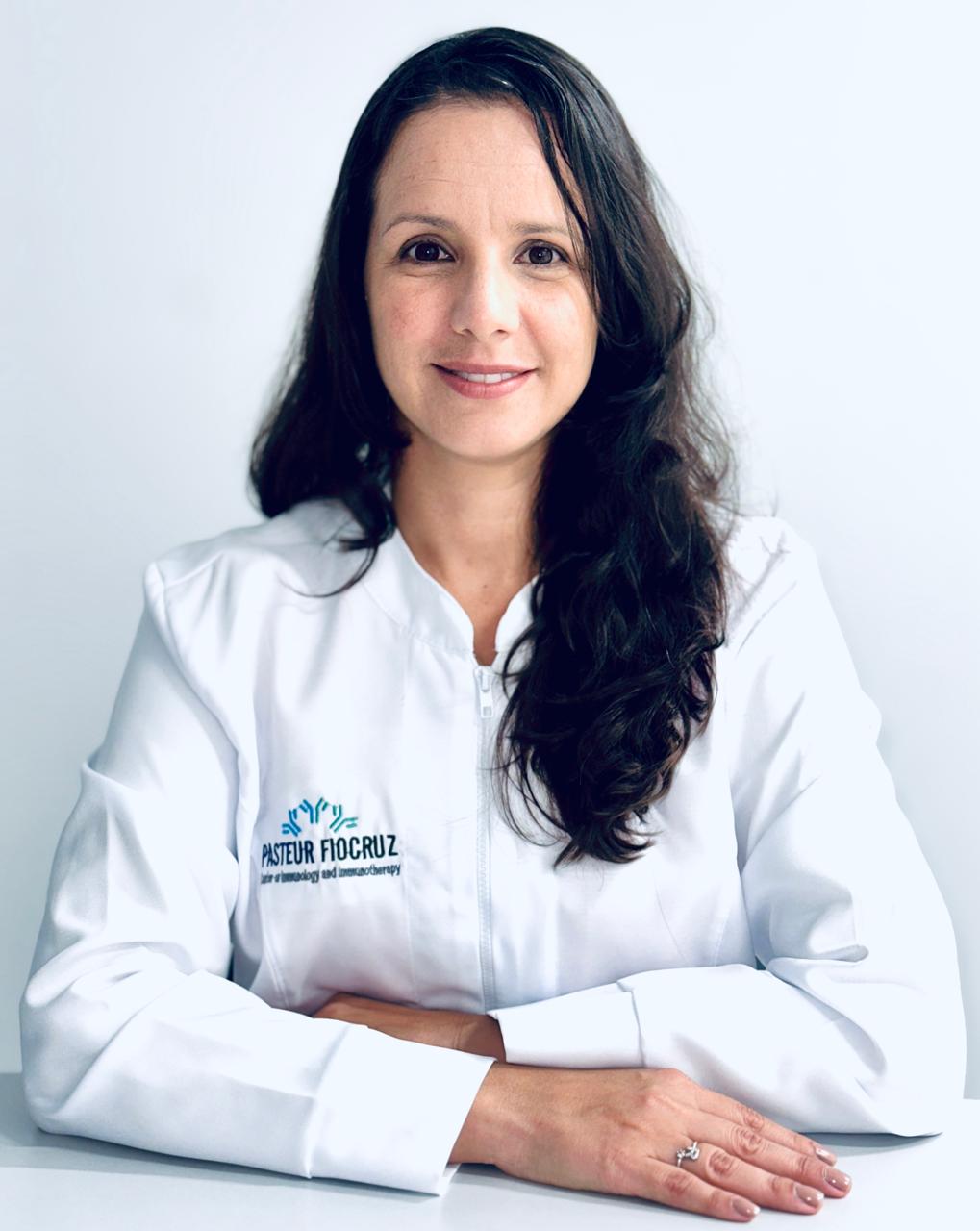
Caroline Pereira Bittencourt Passaes
Coordenadora do Centro, bióloga, mestre e doutora em Biologia Parasitária (Virologia/Imunologia) pelo Instituto Oswaldo Cruz (IOC/Fiocruz), pesquisadora permanente no Institut Pasteur, especialista técnica internacional/conselheira científica regional na Expertise France.
|
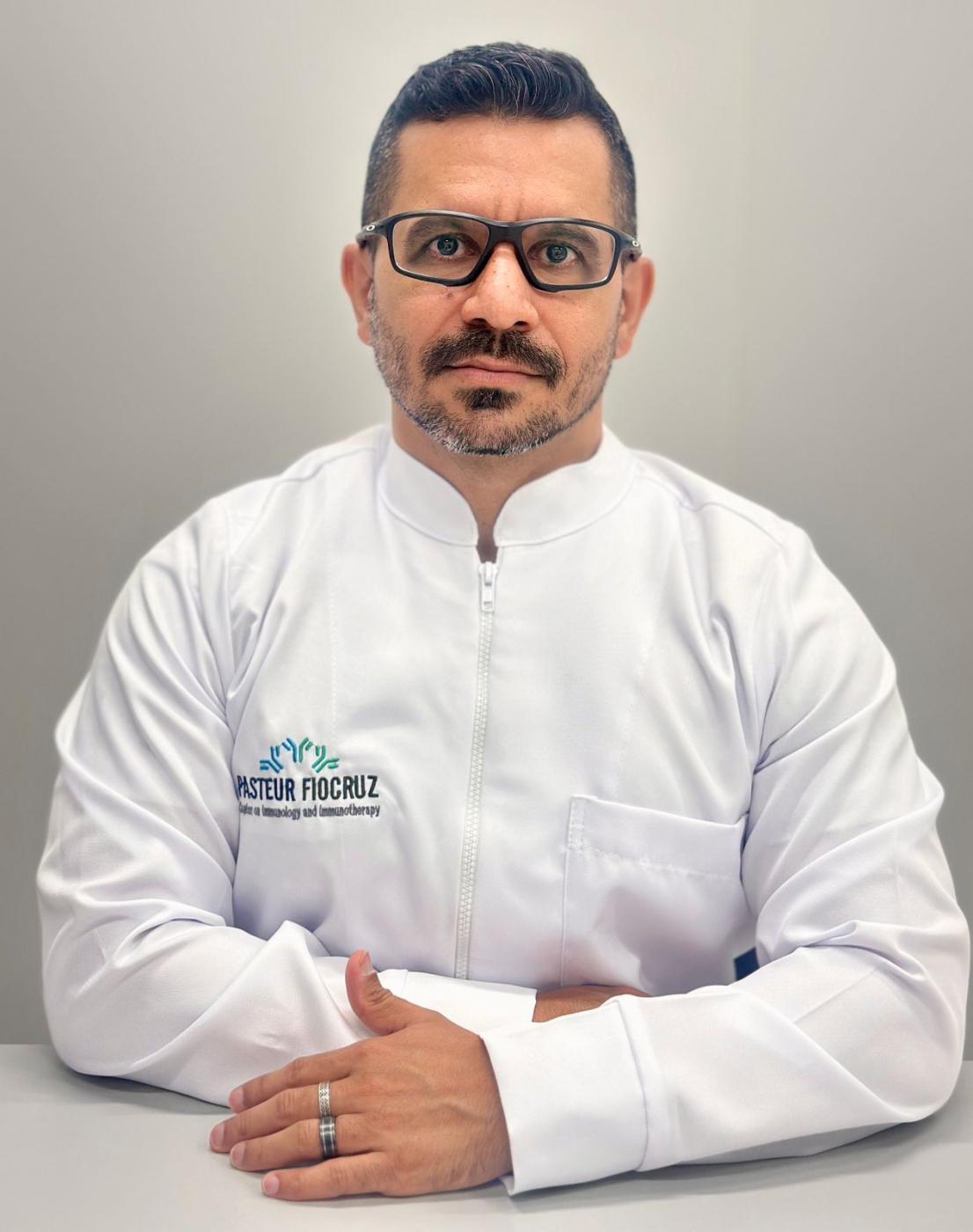
João Hermínio Martins da Silva Sena
Coordenador do Centro,biólogo, mestre em Biofísica pela Universidade Federal do Rio de Janeiro (UFRJ), doutor em Biologia Celular e Molecular pelo Instituto Oswaldo Cruz (IOC/Fiocruz), pesquisador em saúde pública na Fiocruz/Ceará.
|
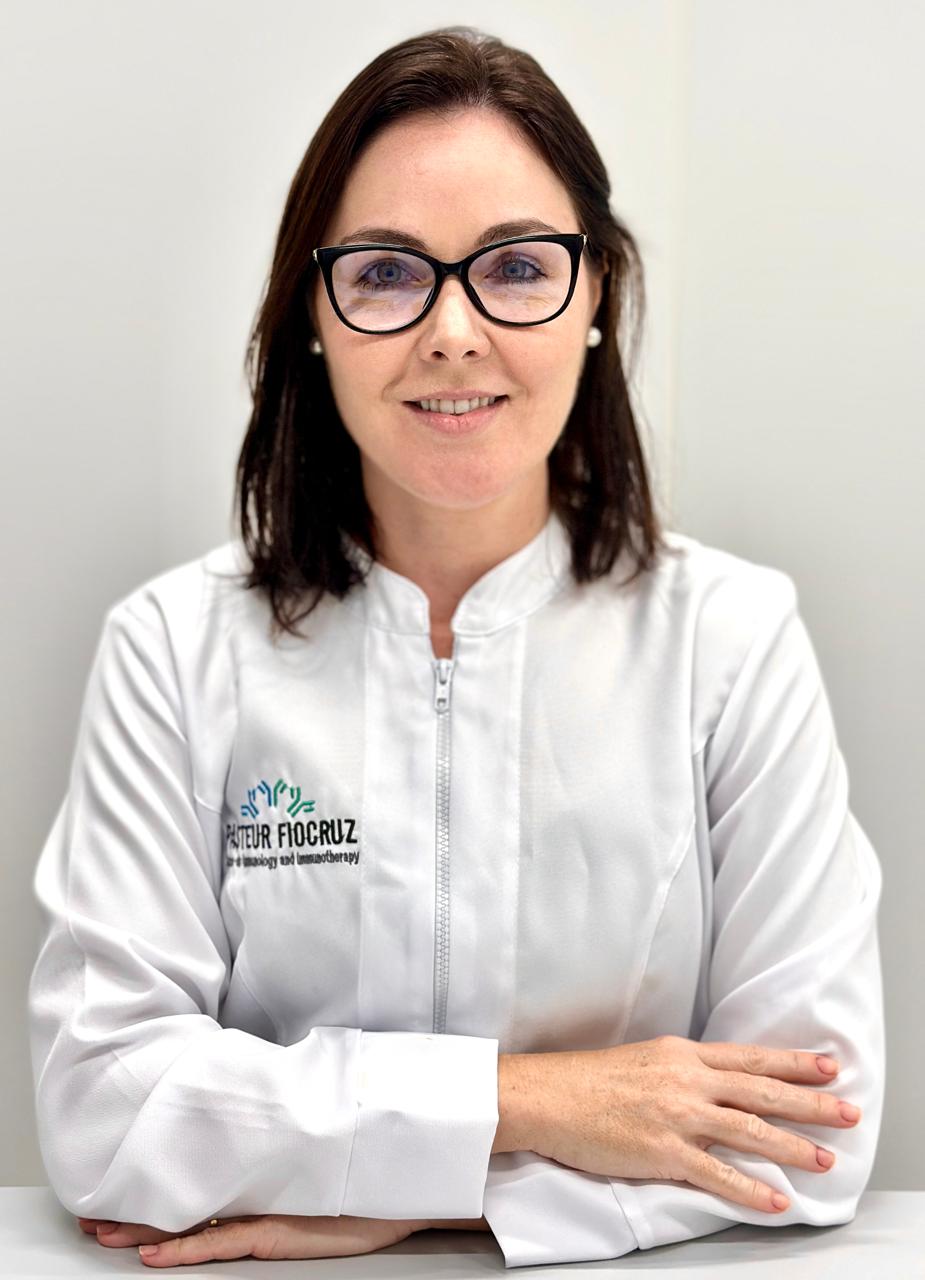
Marcela Gambim Fonseca
Responsavel tecnica, bióloga, doutora em Imunologia pela Universidade de São Paulo (USP), pós-doutorado em Saúde Pública, Tecnologista em Saúde Pública na Fiocruz/Ceará.
|
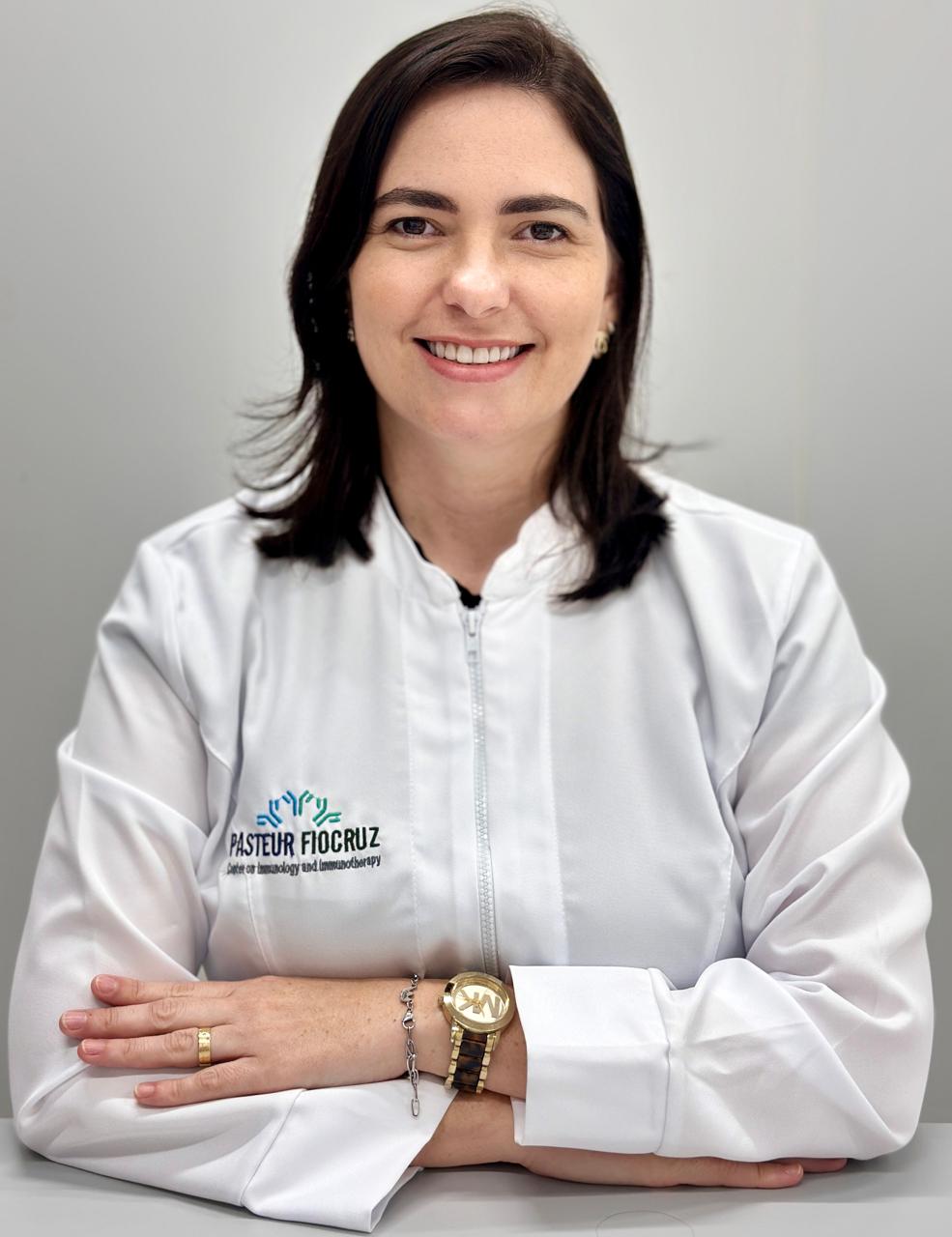
Ana Carolina Pinto
Pesquisadora, farmacêutica, Mestre em Microbiologia e doutora em Ciências Médicas pela Universidade Federal do Ceará (UFC).
|
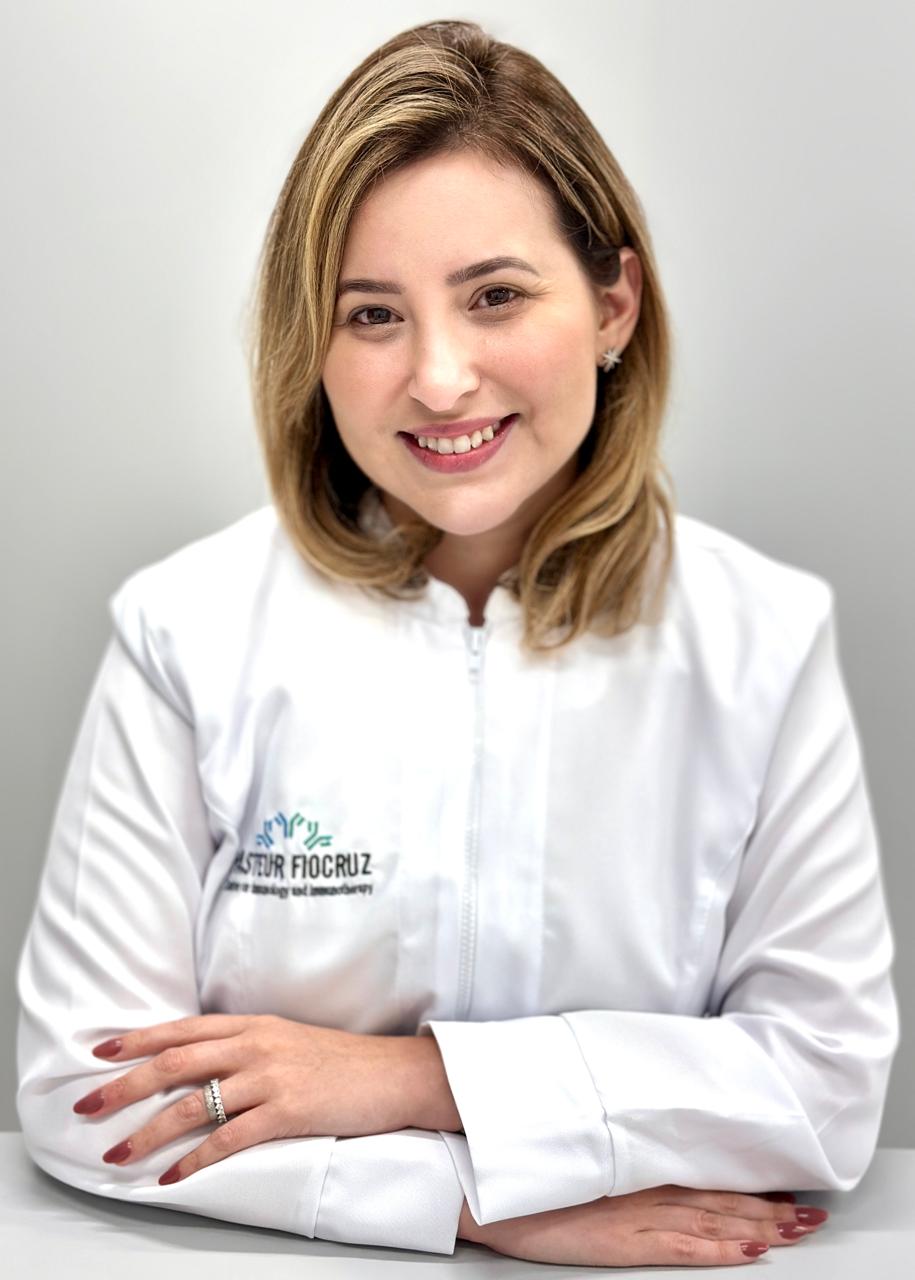
Clarissa Perdigão
Pesquisadora, farmacêutica, mestre e doutora em Ciências Farmacêuticas pela Universidade Federal do Ceará (UFC).
|
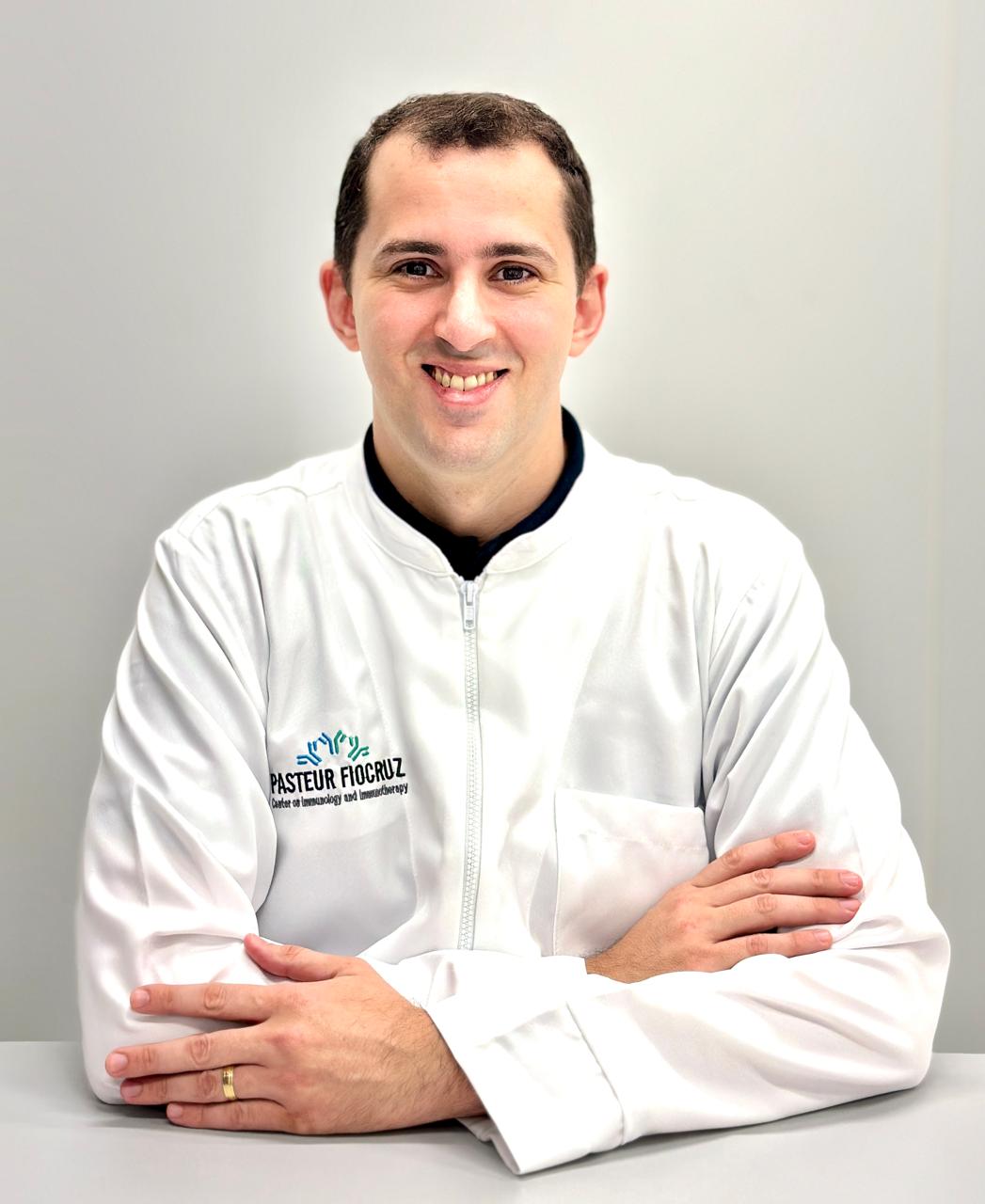
Júlio Ximenes
Pesquisador, biólogo, Mestre em Nanociência e Materiais Avançados pela Universidade Federal do ABC, doutor em Biotecnologia Renorbio pela Universidade Federal do Ceará (UFC).
|
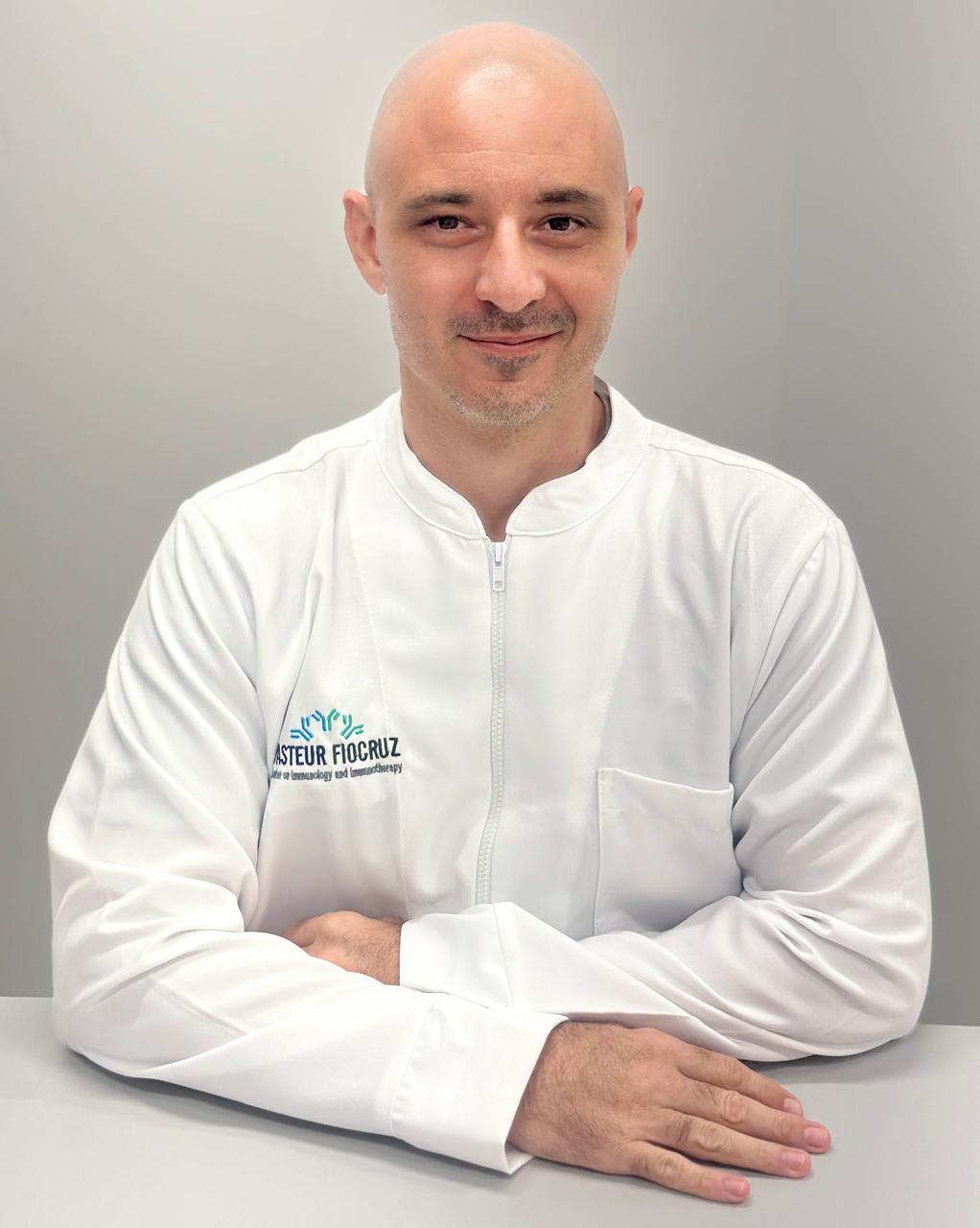
Carlos Augusto Fonseca
Assistente Administrativo, Administrador, graduado em administração pela Universidade de Fortaleza.
Currículo Lattes
|